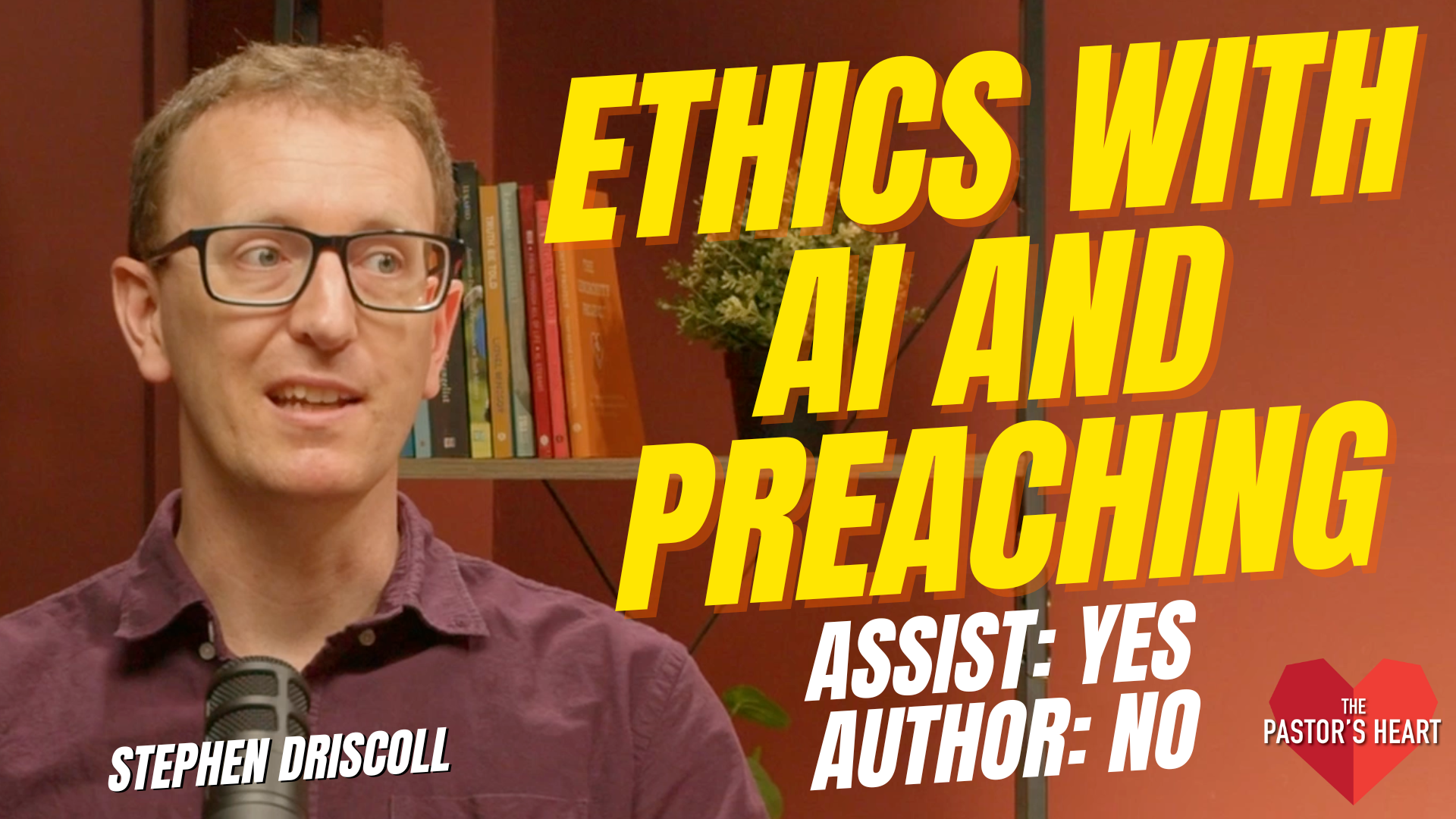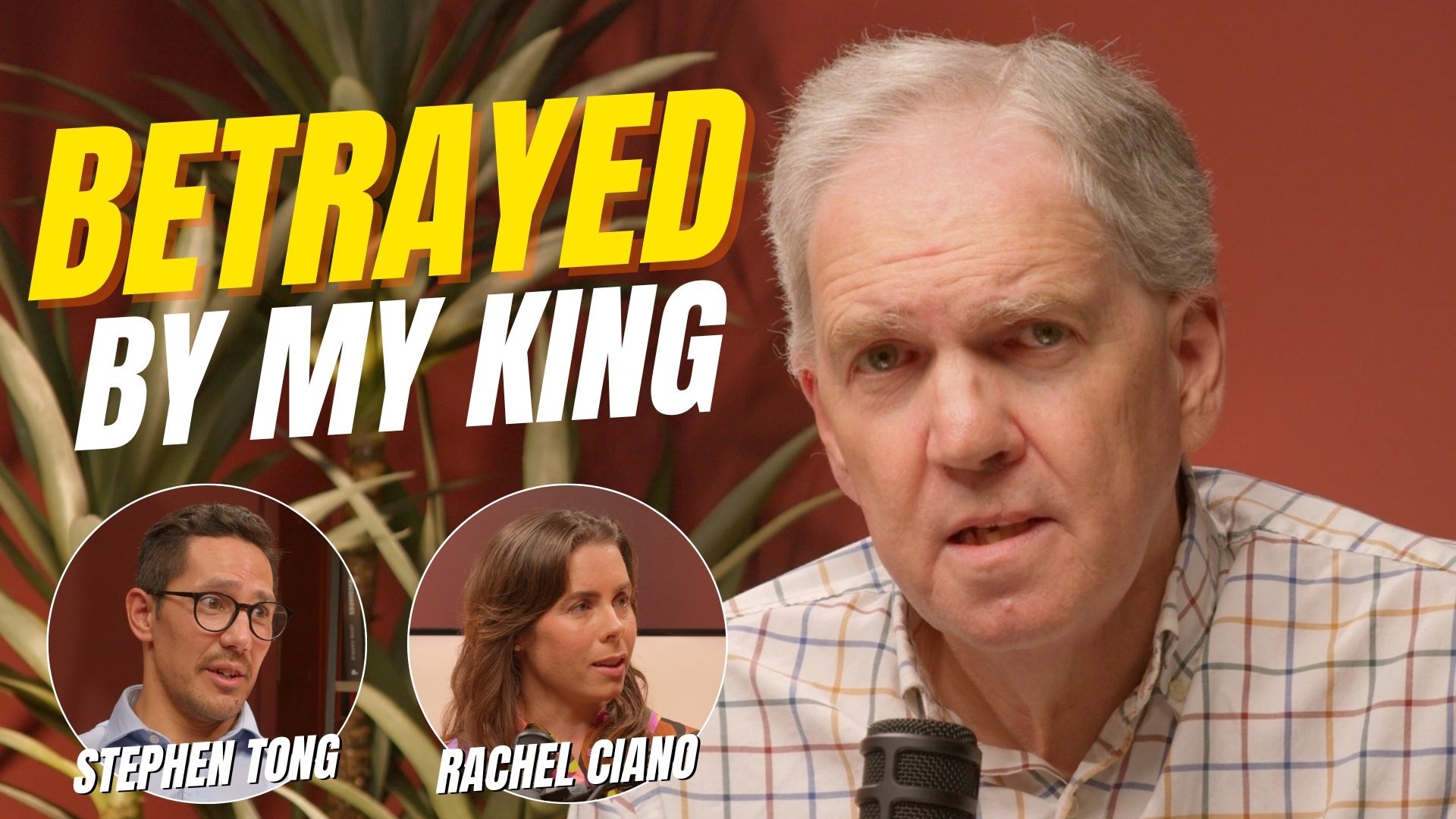All Christians are called to live like Christ. But in Titus 2, the apostle Paul speaks about godliness in strikingly specific ways — addressing older and younger, men and women. Why does he do that? Are age and sex merely cultural categories, or gifts from God that shape the challenges we face in following Jesus?
Making your 'Christmas Talk' better - Sam Chan, Andrew Barry and Adrian Russell
We've pulled in three experts to help us prepare for Christmas Eve and Christmas Day. We share talk structures, attention hooks, and illustrations that connect with guests who didn’t come for a sermon but need a Saviour.
Archbishop Kanishka on love in the face of terror at Bondi - Kanishka Raffel, Martin Morgan and Ben Pakula
Sydney’s Anglican Archbishop Kanishka Raffel calls on Sydney to embrace our Jewish neighbours in love, friendship and support and to reject antisemitism, violence and hatred.
Archbishop Raffel says this is the way of Jesus.
Tears, Questions and Hope - When a senior pastor takes their own life? Keith Condie & Trinette Stanley
In the last few months two senior evangelical leaders have taken their own lives.
We react with a range of questions: Should I have known? Could I have done more? What do I say to the church? What do I say to the world, but most importantly where is God?
AI Ethics and Preaching: Plagiarism, Spiritual Formation & Pastoral Voice - with Stephen Driscoll
What are the dangers when pastors let AI assist… or sometimes author?
How do we think well about plagiarism, spiritual formation and the loss of our pastoral voice?
And are there positive, God-honouring ways to use these tools?
Out with Apostasy and Colonialism: Center of gravity shifts from Canterbury to Abuja - with Paul Donison
Paul Donison responds to global reaction to Gafcon’s reset of the Anglican Communion and its declaration that Canterbury’s time is over.
The Lord is removing his Spirit from the Canterbury–Lambeth lampstand, and the centre of global Anglicanism is shifting from London to Africa.
How to revolutionise your church towards a 5% conversion target - Brett Middleton, Ben Molyneux and Dan Au
How to turn around evangelistic stagnation in your church — or how to start pursuing a 5% goal?
Across Australian Evangelicalism there is a bold goal — growing our churches by 5% per year through conversion growth.
But some pastors are asking: “We haven’t seen anyone become a Christian here in years… where do we even start?”
Riding the young adult revival - Dave Jensen, Sam Mahdavi & Pre Shunmugam
Something is happening. In England the data shows a quiet revival. In France a new evangelical church is opening every ten days. But what about here in Australia?
Among young adults we’re hearing stories of renewed interest in Jesus, fresh conversions and surprising openness. Is this a cultural phenomenon or is it something deeper? And how do we ride the wave?
We talk about ground level experiences, the big picture, the influence of politics, and the five percent conversion growth goal for Sydney Anglican churches.
Church music in a culture obsessed with self expression - with Alanna Glover
What does healthy, joyful, word-shaped congregational singing look like in a culture obsessed with self-expression?
We are shaped more than we realise by the culture around us. And today one of the most powerful cultural forces pressing on our churches is expressive individualism — the idea that the authentic self must be expressed and affirmed.
But what happens when this cultural air we breathe seeps into our church music? When sincerity becomes more important than truth, when the band is excellent yet the congregation is silent, and when singing shifts from “we proclaim Christ together” to “I express what I feel”?
Betrayed by my King - with Rachel Ciano and Stephen Tong
Marcus Loane said no. The King said yes.
For the first time in more than 800 years, an English monarch has prayed publicly with the Pope.
King Charles III — the Supreme Governor of the Church of England — joined Pope Leo XIV in the Sistine Chapel in a highly choreographed moment of unity. But for many Protestants, this was not a moment to celebrate, but to grieve.
Enough’s Enough! — A Bible-Centred Reordering of Global Anglicanism — with Laurent Mbanda
“We are now the Global Anglican Communion,” says Archbishop Laurent Mbanda — the Chair of Gafcon, Primate of Rwanda, and leader of Global Anglicans.
Bible-believing Anglicans around the world are praising God today.
The Anglican Communion is being reordered — reset — with the Bible once again at its foundation.
The Archbishop of Canterbury, the revisionists, and the so-called Canterbury Communion are out — they’ve repeatedly abandoned Cranmerian Anglicanism, and ultimately, Jesus himself.
This reordering seeks to restore the Communion’s original structure — a fellowship of autonomous provinces bound together by the Formularies of the Reformation. There will be no communion with those who have abandoned the authority of Scripture.
A new Council of Primates will be formed, electing a chairman to preside as primus inter pares — first among equals.
Holistic help for Christian addicts - with Antony Dandato
How can we help those trapped in addiction? What about when we ourselves are the ones struggling?
Addiction is often an elephant in the room for pastors — whether it’s alcohol, substances, pornography, or sex addiction. And Antony’s research is asking: “How does the gospel of Jesus Christ bring real hope into the deep brokenness of addiction?”
Laurent Mbanda, Lee Gatiss & Vaughan Roberts: A lanyard wearing Archbishop & fractured communion
The Bishop of London, Dame Sarah Mullally, will take on the role of Archbishop of Canterbury — but instead of celebration, the global response has been marked by shock, disappointment, and unprecedented criticism.
Sinclair Ferguson on the Charlie Kirk controversy, John Macarthur, RC Sproul and preaching to the Queen.
Sinclair Ferguson is speaking across Eastern Australia and joins us to share wisdom that he wishes he’d been given when he started in pastoral ministry in Glasgow 54 years ago.
Sinclair has served for decades as a pastor, preacher, theologian and author in Scotland and the United States. He’s the author of 50 books.
Trusting God when everything is awful - with Richmond Wandera
How do you understand God’s sovereignty when your dad is murdered, your family is in poverty, you are living in the most awful slum and your extended family won’t help.
Richmond Wandera's father murdered when he was just eight years old, leaving his family destitute in Uganda's Naguru slum. Initially he wanted revenge. But then he came to know Jesus Christ.
We talk theological reflections on suffering, as well as a challenge for Western comfort-seeking Christianity, and a clear critique of the Prosperity Gospel.
Honouring Dick Lucas - with Phillip and Peter Jensen
This week marks the 100th birthday of Dick Lucas, one of the most influential evangelical leaders of the 20th century. For nearly four decades as Rector of St Helen’s Bishopsgate in London, Dick shaped a generation of preachers and transformed a quiet city parish into a global centre of expository Bible ministry. The influence of his clear, fearless, and creative preaching continues to ripple out through pulpits around the world.
The missing 70% - Coz Crosscombe, Andrew Beddoe and Simon Gillham
Reaching the 70% of the population who are significantly underrepresented in our churches.
We’re talking about everyday Australians — people who’ve gone straight into the workforce rather than university. That includes hairdressers, plumbers, builders, business owners, factory workers, truck drivers, IT staff, and media creatives — as well as many in marginalised communities.
A new goal to see 5% of average service attendance saved - with Pete Stedman, Jon Kwan, and Jo Gibbs
Twelve months ago we heard the sobering news of a significant attendance drop in Sydney Anglican Churches. Over the decade from 2013 to 2023, weekly attendance fell by 7% – and when you factor in population growth, attendance was 14% behind.
At last year’s Sydney Anglican Synod, the mood was serious. A resolution was passed calling for confession and humble repentance – acknowledging that their hadn’t been sufficient priority, attention, reflection, or resources to seeing the lost saved by Jesus. Synod called for a five-year focus to reverse the decline – putting prayer, evangelism, church health, and leadership development at the very centre of priorities.
Ahead of this year’s Synod, there is a response. The Standing Committee appointed a subcommittee, led by the Archbishop, to bring forward concrete proposals. And what they have come back with is significant.
How to keep going when the knives are out at church? - with Brian Croft and Matthew Spander Davison
The call to ministry is a call to lay down your life for others, but how do we create a well-thought-out roadmap toward pastoral perseverance - when there are external and/or internal difficulties?
How do we approach congregational conflict, criticism, unrealistic expectations or personal health, financial and family stress?
Why is pastoral friendship not optional, but essential?
Today on The Pastor’s Heart, there’s advice for pastors who feel isolated and are feeling like quitting.
How to improve our preaching - with David Cook and Robin Sydserff
Today our focus on The Pastor’s Heart is on how to preach for transformation for real changes in people’s lives.
Two men with a lifetime’s passion for preaching — Robin Sydserff, Director of the Proclamation Trust and David Cook, former principal of Sydney Missionary and Bible College and a long-time preaching mentor - now with the Expository Preaching Trust.
We start by looking at how Christian leaders the UK and Australia influenced preaching patterns overseas.
We look at preaching that has led to record enrolments at Bible Colleges, the purpose of preaching, the life and relationships of the preacher, training preachers and what patience is needed in preaching growth.




















